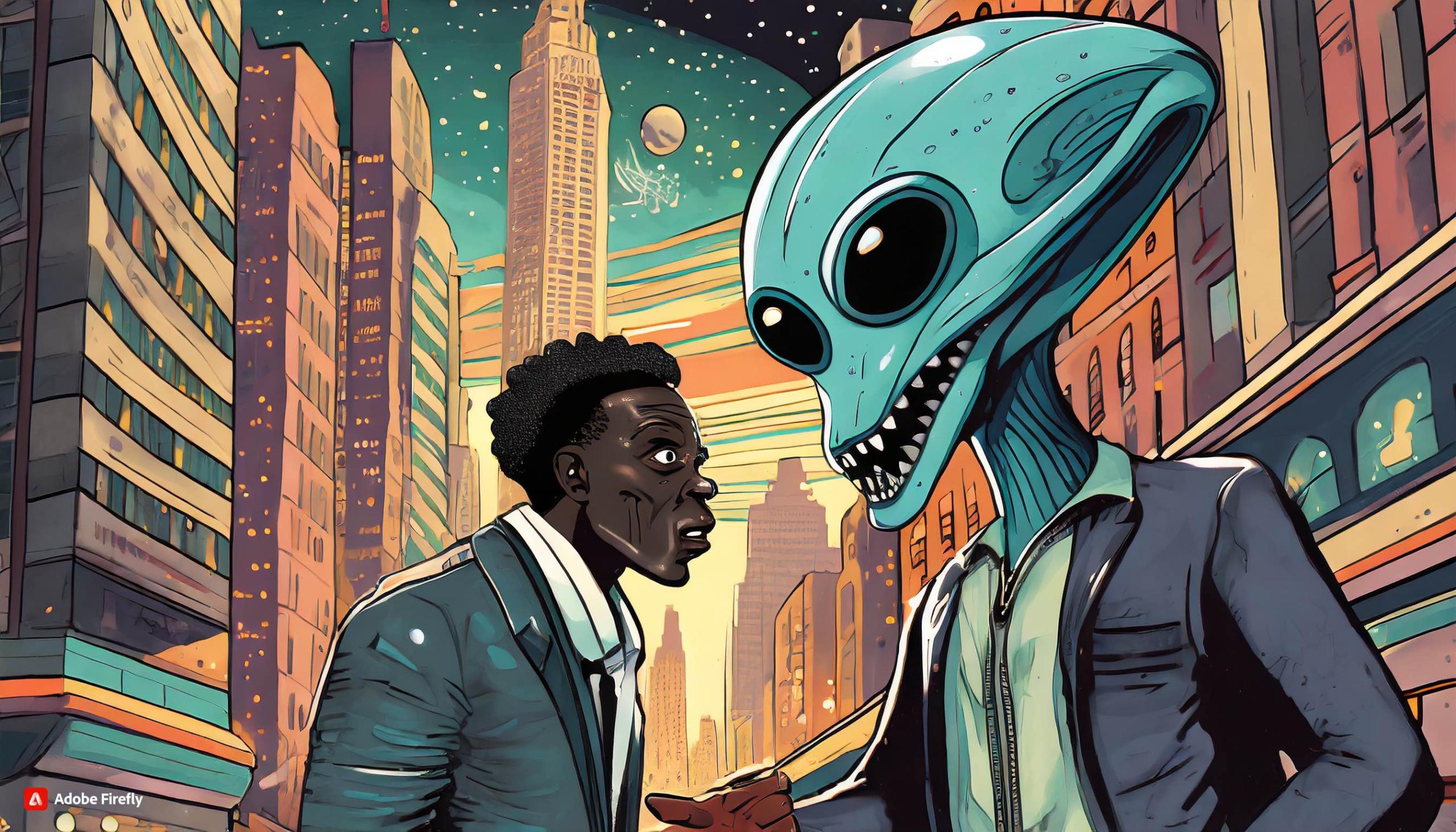
To listen to this instead click here.
Pascal’s Wager
Last week, amidst all my talk of betting, I promised to discuss Pascal’s wager. As this is Patheos I would assume that most people are familiar with the wager, but if not here’s a short explanation from Wikipedia:
Pascal contends that a rational person should adopt a lifestyle consistent with the existence of God and actively strive to believe in God. The reasoning behind this stance lies in the potential outcomes: if God does not exist, the individual incurs only finite losses, potentially sacrificing certain pleasures and luxuries. However, if God does indeed exist, they stand to gain immeasurably, as represented for example by an eternity in Heaven in Abrahamic tradition, while simultaneously avoiding boundless losses associated with an eternity in Hell.
At its core, the wager dictates that anytime you’re offered a chance, however small, to win something of infinite value by giving up something finite, you should take it. The same injunction applies with respect to avoiding infinite harm through finite means.
The wager is made more attractive by the fact that the finite bet religion asks us to make is not even particularly onerous. We’re not being asked to wager our lives, merely the manner in which we live our lives. Put more simply we’re supposed to do certain things while avoiding other things. Also as I pointed out in last week’s post these things generally end up being beneficial—especially over the long run. Religious individuals accrue all sorts of advantages: a reduction in mortality and suicide rates, an increase in life satisfaction, times spent volunteering, and civic engagement.
This seems like such a good deal that at various points religious individuals have offered Pascal’s wager up as a checkmate—an argument for which atheists and agnostics had no rebuttal. This is not true of course. Atheists and agnostics are clever people and they actually have numerous rebuttals. These range from the idea that being religious in an attempt to “win” a bet is not true faith, to pointing out there are thousands of religions and it’s not clear where your bet should be placed.
Pascal’s Mugging
One counterargument of more modern extraction is called Pascal’s Mugging. This argument emerged from the rationalist/effective altruism/X-risk community, and it takes the finite/infinite trade and flips it.
Both the original wager and the “mugging” variant assume that you’re a utilitarian on some level, that you “choose those actions with outcomes that, after being weighted by their probabilities, have a greater utility”. As a utilitarian you’re expected to make any number of difficult choices, where the probabilities are unclear, but this argument uses the example of a mugging. As is typically the case with being mugged, in the thought experiment someone accosts you and demands all of your money. But rather than threatening you with a gun or a knife, their threat is that if you don’t give them all your money they will cause an immense amount of harm in some implausible fashion.
For example, imagine that the “mugger” says that they are an alien, with god-like power, and that unless you give them all of your money they will use their alien superpowers to destroy the planet Omicron Persei 8 along with its five billion sentient inhabitants. As a true utilitarian you’re now forced to calculate the probability that they can cause these deaths. And once you have done so, decide whether to give the person all of the money you’re currently carrying (let’s say it’s $100). Alternatively you can refuse and, potentially, doom five billion Omicronians to death.
If you were a committed utilitarian you would take your best estimate of the value of an Omicronian life, multiply that by five billion then multiply that by the chances that the person standing in front of you really has the power to kill them all. If that amount is greater than $100 you’d turn over your money, and if it’s not you wouldn’t. More likely you’d just laugh, and after checking for the presence of more realistic threats you’d move on.
Those who use Pascal’s mugging to undermine Pascal’s wager, expect that you will note the similarities, and move on from the wager with the same dismissive laugh. But for the moment let’s take a closer look at the mugger.
Things Seen and Unseen
As I said, the probability that the mugger is in fact an immensely powerful alien is infinitesimal, but how infinitesimal? There are various ways to try to judge this probability, but they mostly boil down to the message and the messenger.
One of the first things that jumps out at you is how self-serving his message is. If you believe his message and give him the money, it’s great for him and bad for you. He has an incentive to lie. Beyond that his message doesn’t make sense. If he has the god-like powers he describes, why would he need $100?
What if, instead, he’s offering to help you? Maybe instead of trying to take $100 he’s insisting that he has to give you $100 or the Omicronians will all die. You would still assign a low probability to the story being true, but the whole character of the interaction has changed. Suddenly acceding to his demands “just in case” is entirely reasonable.
Taking $100 is easy, giving up $100 is hard. What if, instead of claiming billions of sentients would die, the mugger said that giving him $100 would help him feed his family and provide spiritual benefits? He still might very well be lying, but at least he’s offering us a story that fits well into our past experience, the stories we’ve been told, and the reality of the world.
Finally, what if his message wasn’t limited to the brief threat I outlined above, what if he had a whole book on the subject which you could read? And what if the book was persuasive and well written? How does that affect things?
Moving from the message to the messenger, perhaps it shouldn’t make a difference, but I think most of us would react differently if the messenger wore a suit and spoke with a posh British accent. As opposed to a messenger who was tattooed, appeared high, and leavened his demands with profanity.
What if the messenger wasn’t a stranger at all, but rather your father?
Or what if there were more than one person telling you about this event?
What if there were millions?
What if they included all of your ancestors?
A More Accurate Metaphor
Obviously there are a lot of moving parts at this point, but hopefully you’ve figured out what direction I’m headed with all this. Lots of people use Pascal’s Mugging as a quick and dirty way to dismiss Pascal’s Wager. But each step one takes towards making the example more closely resemble how religion actually works makes it less silly and more palatable.
A belief in God and religion does not suddenly appear without context. It’s not some weird claim that you’ve never heard before. It’s something that’s been around for thousands of years. Nor is there a single messenger, not only are there millions of other believers, but for most people there is a long line of ancestors. For the vast majority of these ancestors, belief and religion were central to their existence. Finally, as I pointed out in the last post, religion makes the lives of its adherents better. Which is to say, most people are paradoxically better off agreeing to be “mugged”.
The point of all of the above is not to talk someone into religion solely by pointing out problems with a common atheist argument. Such an endeavor would obviously be futile. Nor is the point to stretch these arguments beyond where they can reasonably be applied. They’re interesting, but the argument over God’s existence has been going on for a very, very long time and these points are only the tiniest additions to that argument.
Also, if I’m being honest, part of my reason for bringing these points up is that they make my team look better and the other team look worse. Sort of a “Christians rule atheists drool” motivation, if you will. But that point aside, what I’m hoping people will take away from this post and all of my posts on this topic is a caution against being overly flippant about the question of God’s existence.
Critics of Pascal’s Wager often ask us to consider it in isolation—shorn of emotion, community, history, or earthly benefits—reducing it to something shallow and silly like Pascal’s mugging. That it’s a choice rational people consider once and just as quickly dismiss before moving on with their life. But in reality all of life and all of history is tied up in this choice.
Perhaps there is no God.
But I believe that there is and I have bet my entire life around that belief.
I readily admit that everyone is free to make that bet however they choose, and that many people are going to make a choice different from mine. What I will not concede is that this choice is silly or trivial, rather I believe it’s the most important choice we’re ever called upon to make.












